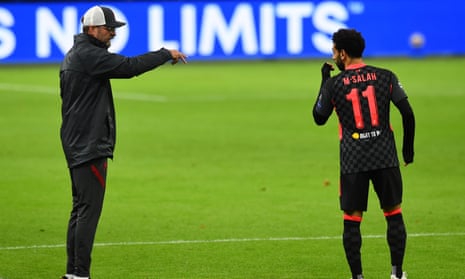If you want to see the dilemmas of globalisation playing out, forget Brexit or the US elections. Watch a game of football (though in Britain, of course, you can’t actually watch a game in a stadium these days). For it’s in the beautiful game that the many faces of globalisation reveal themselves.
Last week, news broke of talks between top European clubs about creating a breakaway lucrative European Premier League. A week earlier, two of the teams reportedly involved in these talks, Liverpool and Manchester United, had attempted a power grab in the English game, offering more money to the sides in the lower leagues in return for a handful of top clubs having control. Liverpool and Man United had to retreat in the face of fierce criticism. It’s unlikely, though, that either plan has been buried. What they reveal is the tension between the needs of commerce and those of supporters, between the demands of elite sides and the burdens on those at bottom of football’s pyramid.
Over the past 30 years, football has metamorphosed from being what the Sunday Times called, in the wake of the 1985 Heysel tragedy, “a slum game played by slum people in slum stadiums” into “an optimistic, upwardly mobile, aspirational business”, in the words of Richard Scudamore, former CEO of the Premier League, speaking to MPs in 2011. From unrestrained contempt for the “working-class game” to adoration in management-speak in the space of three decades.
When the Premier League launched in 1992, revenue in its first season was £170m; last year, it was €5.16bn. The new wealth has allowed the league to attract some of the world’s best players and managers. On the opening day of that first season, 13 foreign players graced the Premier League. This year, 244 have already stepped on to the pitch. And all this has made it attractive for everyone from Russian oligarchs to Middle Eastern autocrats to buy English clubs.
In football, as in politics, globalisation has created a tension between the benefits of a more cosmopolitan game and the erosion of local attachments and the creation of huge inequalities. Football is not just about watching 22 people kick the ball around for an hour and a half. What gives football its heart, its soul and its drama, is that every game, every fan, is part of a wider story. Part of a collective memory, an identity, an imagined community. In many small towns, football clubs are among the most important social institutions, providing both a sense of civic pride and a form of collective hope and aspiration.
All this, however, slams against the imperatives of football as a business. That’s why we need to be clear about what exactly is wrong with the globalisation of football. It’s not the creation of a more cosmopolitan game. Few would moan about being able to watch some of the world’s great players (Mohamed Salah, Kevin de Bruyne, James Rodriguez). Or the fact that such players are coached by some of the best managers in the world (Jürgen Klopp, Pep Guardiola, Carlo Ancelotti). Some worry that the influx of foreign players has squeezed out English players. Yet one could argue that it’s improved them, that they have benefited from both playing with and being coached by the world’s best. And foreign players and coaches can have as great an attachment to their clubs as British-born ones. German Klopp is as much part of Liverpool folklore as Bill Shankly. Arsenal fans worship French former forward Thierry Henry as “one of ours” as much as they do Londoner Ian Wright.
What grates is the other side of the equation: the commercialisation, the creation of monstrous inequalities. The plans for a European Premier League envisage games between the European top teams as a money-spinning exercise detached from any organic connection to a history of competition or rivalry. It also evinces a desire to corner the market, as if Liverpool and Leeds were like Amazon and Google.
The question facing football is about how to foster the one without encouraging the other, how to nurture the openness and cosmopolitanism without cultivating also the soullessness and the inequalities. It’s the question confronting us in politics, too. We can only begin to answer it if we stop thinking about globalisation as a single phenomenon, about which we have to be for or against, but start unpicking its different threads, good and bad.
“There is more politics in football,” the former England manager, the Swede Sven-Göran Eriksson, once quipped, “than in politics.” He spoke more truth than he probably realised.

